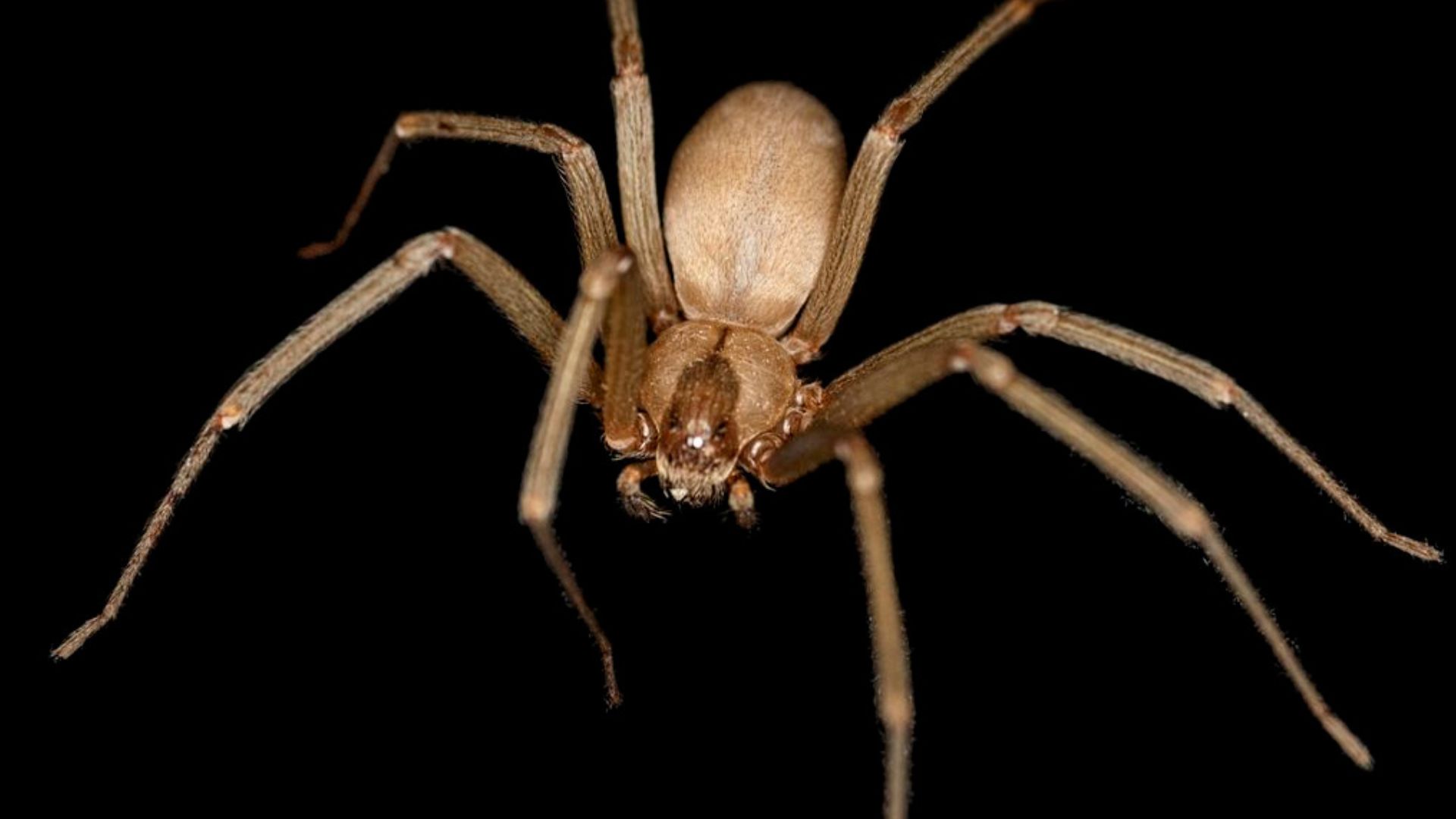In rare case, man develops painful deep vein blood clots following brown recluse spider bite
A man in Michigan developed deep vein thrombosis after reportedly being bitten by a brown recluse spider.

Get the world’s most fascinating discoveries delivered straight to your inbox.
You are now subscribed
Your newsletter sign-up was successful
Want to add more newsletters?

Delivered Daily
Daily Newsletter
Sign up for the latest discoveries, groundbreaking research and fascinating breakthroughs that impact you and the wider world direct to your inbox.

Once a week
Life's Little Mysteries
Feed your curiosity with an exclusive mystery every week, solved with science and delivered direct to your inbox before it's seen anywhere else.

Once a week
How It Works
Sign up to our free science & technology newsletter for your weekly fix of fascinating articles, quick quizzes, amazing images, and more

Delivered daily
Space.com Newsletter
Breaking space news, the latest updates on rocket launches, skywatching events and more!

Once a month
Watch This Space
Sign up to our monthly entertainment newsletter to keep up with all our coverage of the latest sci-fi and space movies, tv shows, games and books.

Once a week
Night Sky This Week
Discover this week's must-see night sky events, moon phases, and stunning astrophotos. Sign up for our skywatching newsletter and explore the universe with us!
Join the club
Get full access to premium articles, exclusive features and a growing list of member rewards.
In the first known case of its kind, a man in Michigan developed recurrent deep vein thrombosis (DVT) in both legs after reportedly being bitten by a brown recluse spider.
Previously, "no case of deep vein thrombosis has been reported following a brown recluse spider bite," according to a new report of the unusual case, published in April in the journal Clinical Case Reports.
Brown recluse spiders (Loxosceles reclusa) aren't typically found in Michigan. However, rare, isolated populations have sometimes been identified in the state, and some studies suggest that the arachnids might spread northward from their native range as the planet warms.
The six-eyed, solid-brown spiders are considered native to Kansas, Oklahoma, Texas, Louisiana, Arkansas, Missouri, Mississippi and Alabama, as well as parts of Georgia, Tennessee, Kentucky, Ohio, Indiana, Illinois, Iowa and Nebraska.
Related: What is the deadliest spider in the world?
The 45-year-old man in the new case report went to an emergency department in Michigan following the brown recluse bite. (The case report does not note how the spider's identity was verified, but in any case, there are no medical tests available to definitively identify a brown recluse bite.)
The man was experiencing left calf pain, as well as swelling and ulcers around the bite site. Upon examining the patient, doctors also noted swelling, tenderness and fluid buildup (known as edema) in his right calf. Based on the results of various tests, the doctors made a provisional diagnosis of DVT, and treated the man with saline, morphine and a medicine to counter blood clotting.
Get the world’s most fascinating discoveries delivered straight to your inbox.
When the man's pain and swelling persisted, he underwent a balloon thrombectomy, a surgery to physically remove the blood clots, and had stents placed in several affected veins. He was then discharged with prescriptions for various medications to decrease the chance of further blood clotting.
However, the man was "noncompliant with medication" and returned to the emergency department four days later with discoloration, mild swelling and worsening leg pain, the case report authors wrote. He underwent another thrombectomy and was advised to continue his anti-blood-clotting medications.
At a follow-up visit the next month, "he complained of persistent leg pain and leg swelling despite medication compliance" and was treated with a venoplasty, a procedure that helps open a narrowed vein using a small balloon. But again, another month later, the man's symptoms persisted, and shortly after, he went to the emergency room for an acute episode of leg swelling and pain, the authors wrote.
He was then sent to a venous thromboembolism clinic, where doctors discovered scar tissue in the patient's veins that likely contributed to his persistent symptoms. After that visit, the patient was advised to take anticoagulants for life and to use compression stockings and a compression pump for symptom relief, the authors wrote. He was then lost to follow-up, so long-term data are not available.
How could a brown recluse spider bite trigger such persistent DVT? It's possible that a molecule called phospholipase D (PLD), found in the spider's venom, could have partially driven the condition's development, the study authors suggested. PLD has been linked to "massive inflammation" and the accumulation of platelets, cell fragments that stick together to form blood clots.
"In our patient, we did not find any other cause which might have contributed to DVT," the authors wrote. "Hence, PLD can be attributed to the development of deep venous thrombosis."
Brown recluse bites can cause mild to severe symptoms, Live Science previously reported. Most bites cause inflammation but ultimately resolve on their own. However, in people who are sensitive to the spiders' venom, bites can cause skin cells to rapidly die, leading to the development of circular "necrotic lesions" that sometimes linger for months.
In rare, particularly severe cases, brown recluse bites can cause systemic loxoscelism, a body-wide immune reaction that can lead to blood clotting and the destruction of red blood cells.

Nicoletta Lanese is the health channel editor at Live Science and was previously a news editor and staff writer at the site. She holds a graduate certificate in science communication from UC Santa Cruz and degrees in neuroscience and dance from the University of Florida. Her work has appeared in The Scientist, Science News, the Mercury News, Mongabay and Stanford Medicine Magazine, among other outlets. Based in NYC, she also remains heavily involved in dance and performs in local choreographers' work.
 Live Science Plus
Live Science Plus










